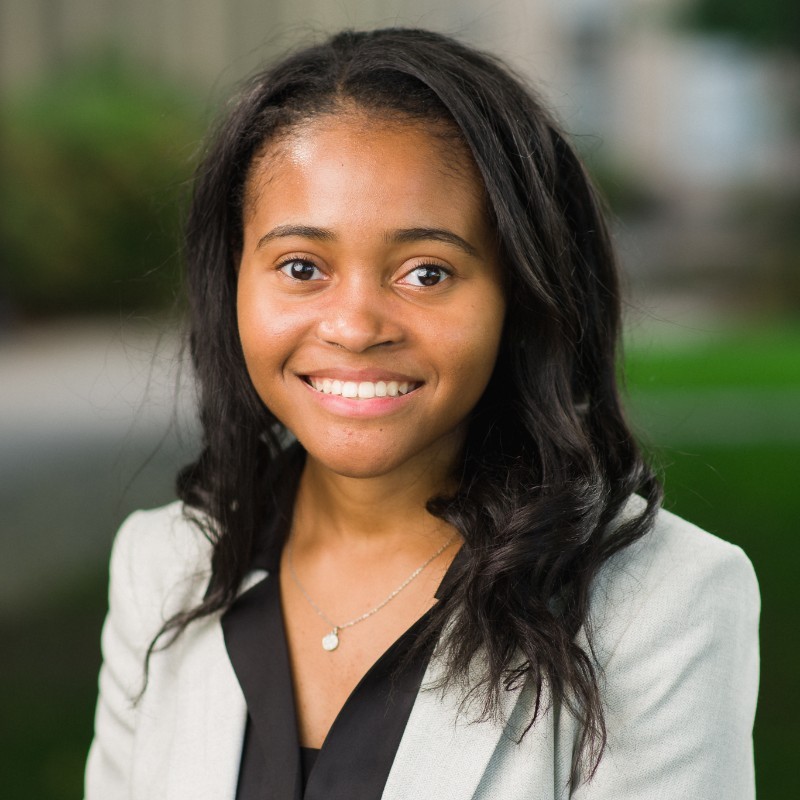
Researching social issues: Savannah Gregory on being an MSRP intern at IDSS
The 2022 MIT Summer Research Program (MSRP) brought over 80 undergraduate students to MIT from institutions across the country. MSRP seeks to prepare underrepresented students (minorities, women in STEM, or students with low socioeconomic status) for doctoral education by pairing them with MIT labs and research groups. During the 9 weeks, students gain new research skills and learn about the process of applying to graduate programs.
Savannah Gregory, a rising Senior at the University of Notre Dame, worked at IDSS with Prof. Anette ‘Peko’ Hosoi, SES PhD student Aurora Zhang, and others on the housing team of the Initiative on Combatting Systemic Racism (ICSR). Savannah reflects on her experience with the group, which left her eager to continue exploring housing issues and research in general.
Tell us about your research project.
The team and I work on a dedicated practice intended to understand systemic racism, or discriminatory processes that often disproportionately harm minority communities in structures related to housing security. Our immediate ambition is to localize points of entry whereby effective policy changes or economic intervention can work to diminish racial gaps in homeownership and wealth accumulation.
My focus this summer has been to create a preliminary systems map, carefully tailored to include social, economic, and historic contexts, in order to better visualize causality and comprehend relationships between target and explanatory variables. My hope is that future work will be able to limit assumptions, consider areas of benign neglect, and quantify the influence of multiple variables on specific races, excluding all else.
What is something new you learned about IDSS or MIT?
Admittedly, when I first came to MIT and IDSS, I dwelled on what it meant to be an African American woman and undergraduate student in a room of accomplished PhD students and faculty members. Now, I consider both the students and faculty members friends.
“I feel confident that I am viewed as an extension of the team, a member that is seen as another mind worth exploring.”
I feel confident that I am viewed as an extension of the team, a member that is seen as another mind worth exploring. As I reflect on my experiences, I now recognize MIT and IDSS as places where intellect is groomed and curiosity encouraged. Even with guidance from mentors, I am given ample room to discover what truly interests me with the knowledge that my contribution matters. I only wish I had more than nine weeks to discover more about what it means to be MIT.
What will you bring back to your home institution?
I attend the University of Notre Dame, and I study and conduct research under wonderful faculty members in the Psychology Department. I am beyond excited to return to my home institution with what I have learned at MIT. When I first arrived at IDSS, I did so with the hope of learning what it takes to research social issues. I feel I have learned that and far more. Before now, I believed my approach to research was identical to my approach to academics – a methodical advance with enough zeal and tenacity to hunt for answers that I was quite sure I would find. Research without experimentation is far more than that, and, in hindsight, I am glad for the challenge.
Research necessitates thoughtful exploration. There is so much more that can be discovered with an open mind, even in pursuit of a specific end goal. MIT showed me more than any one person could have simply explained to me, not to mention the amount of coding knowledge I was able to procure in a matter of nine weeks. I am a better researcher for it, and I will strive to bring my skills to Notre Dame with the hope of improving my commitment and contribution to future research teams.
Learn more about the ICSR Housing team and their ongoing research projects.



